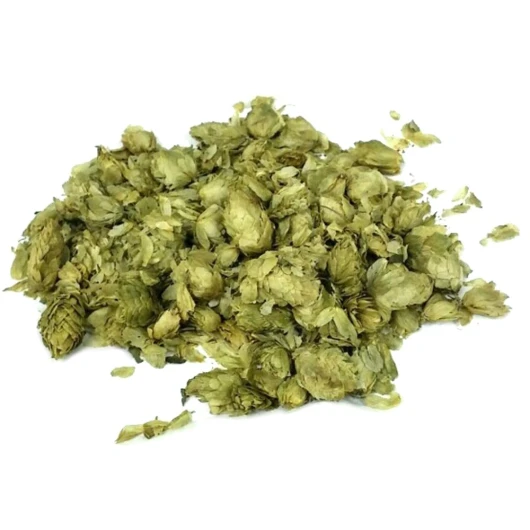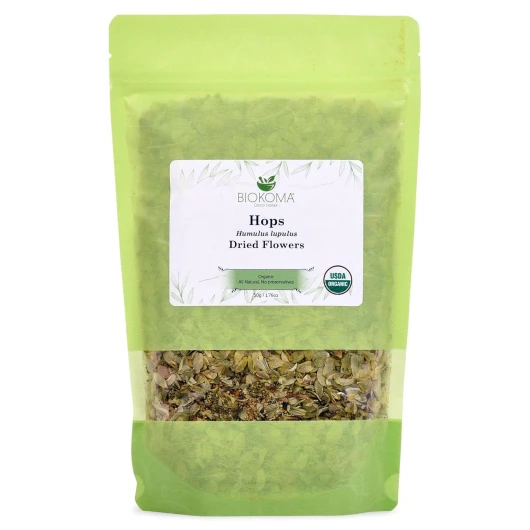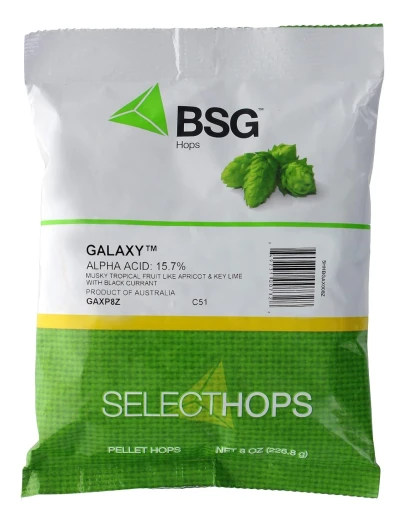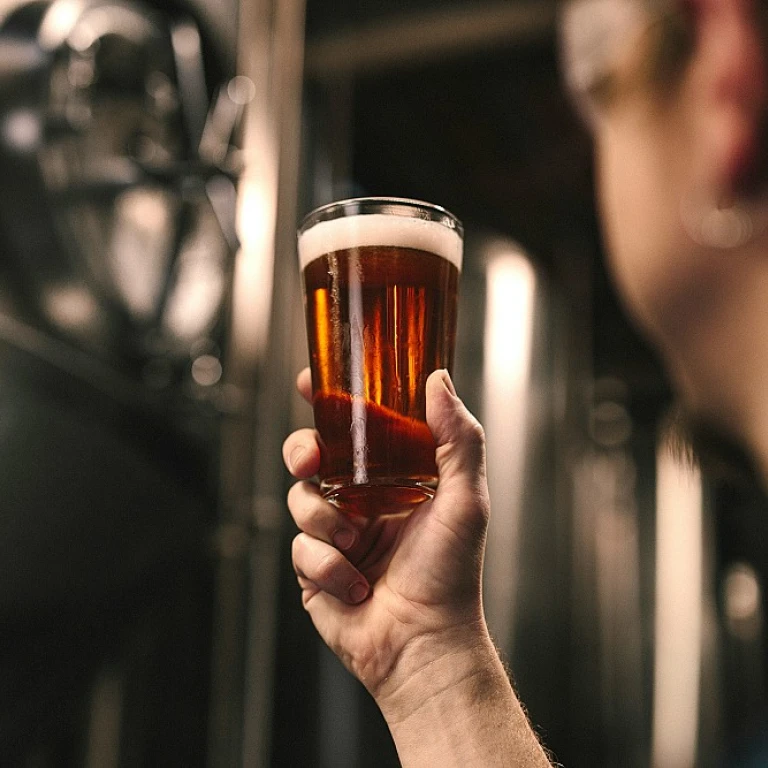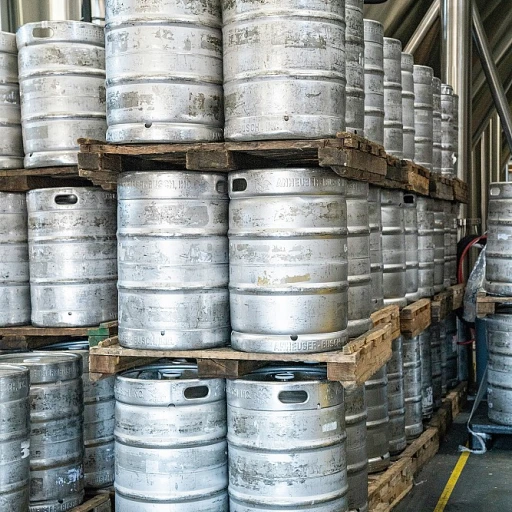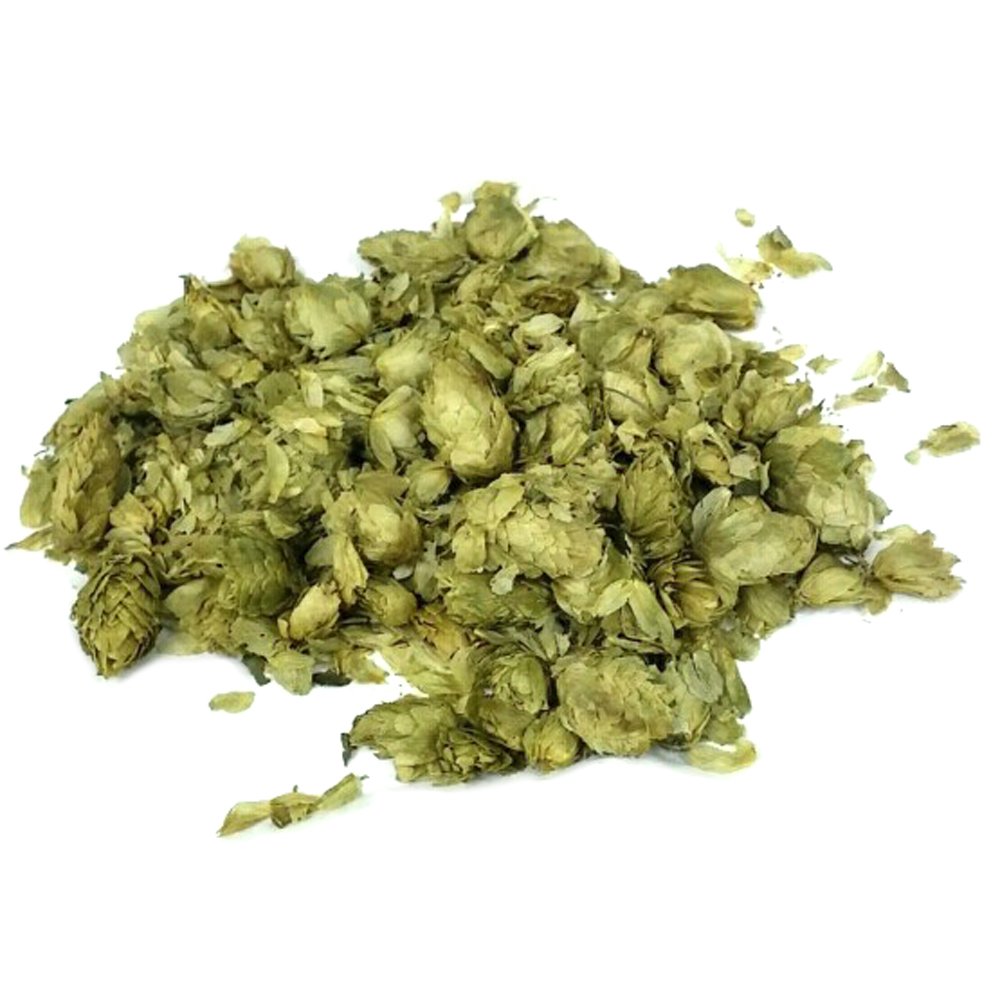
What hops really are and why they matter for gluten
Understanding hops beyond just bitterness
Hops are the cone-shaped flowers of the Humulus lupulus plant. Brewers use them to add bitterness, aroma, and flavor to beer. When you taste notes of citrus, pine, tropical fruit, or floral character in a beer, that is usually the hops at work. They also help preserve beer and balance the sweetness that comes from malted grains.
From a gluten point of view, the key detail is simple : hops are a plant part similar to herbs or spices, not a cereal grain. Gluten is a protein found in specific grains such as barley, wheat, and rye. Since hops are flowers, they do not naturally contain gluten in the way those grains do.
How hops fit into the brewing puzzle
In a typical recipe, hops are only one piece of the puzzle. The bulk of the fermentable material comes from malted grains, which can be rich in gluten. Specialty malts, like those used for color and sweetness, play a big role here. If you want to understand how malt shapes flavor and body, reading about the impact of cara gold malt on beer is a helpful starting point.
Hops are added at different stages of the boil and sometimes after fermentation. Early additions mainly add bitterness, while later additions boost aroma and flavor. None of these steps are meant to change gluten levels ; they are about shaping taste and balance.
So when you start looking at gluten in beer, it is important to separate what hops do from what grains do. The real gluten story lies with the malt bill and how the beer is produced, which we will explore in more depth when we look at where gluten actually comes from and how to choose safer options.
Where gluten in beer really comes from
Why gluten shows up in most beers
Gluten in beer does not come from hops. It comes from the grains used as the main fermentable ingredient. Traditional beer is brewed with barley and often wheat or rye, all of which naturally contain gluten. During malting and mashing, enzymes break down starches into sugars for the yeast, but the gluten proteins remain largely intact. They may be partially degraded, yet they are still present enough to trigger reactions in people with celiac disease or non-celiac gluten sensitivity.
Even beers marketed as “crafted to remove gluten” usually start with barley. Enzymes are added to break gluten proteins into smaller fragments. While this can reduce the measurable gluten content, it does not guarantee safety for everyone who is highly sensitive. That is why many people with strict gluten needs prefer beers brewed from naturally gluten free grains such as sorghum, rice, millet, or buckwheat, which you will see mentioned again when we look at safer beer choices.
Other ingredients that can confuse the picture
Besides gluten, beer can contain other components that cause reactions or discomfort, such as sulfites, which are sometimes present naturally or added as preservatives. If you are trying to understand whether your symptoms come from gluten or something else in your glass, it helps to separate these issues. A detailed look at sulfites in beer can clarify whether they might be part of the problem for you.
Once you know that gluten is primarily a grain issue, not a hop issue, it becomes easier to evaluate labels, ask the right questions at breweries, and focus on the ingredients that truly matter for your health.
Hops, celiac disease and gluten sensitivity : what you really need to watch
Understanding risk levels for sensitive drinkers
If you live with celiac disease or non-celiac gluten sensitivity, the main question is not whether hops contain gluten, but how they are handled and what they touch along the way. On their own, hops are naturally gluten free. The trouble starts when they are processed or used in a brewery that also works with barley, wheat, or rye.
Most people with gluten issues react to gluten levels above 20 ppm (parts per million). Hops themselves usually test well below this, but cross-contact can push a finished beer over that threshold. Shared equipment, dusty malt in the air, or contaminated storage bins can all introduce traces of gluten to otherwise safe ingredients.
When hops may become a problem
Here are the main situations where hops can become risky for sensitive drinkers :
- Shared processing facilities where hop pellets or extracts are handled near malted grains.
- Brewhouses using the same lines for both gluten-containing and gluten-free beers, without strict cleaning protocols.
- Dry hopping in tanks that previously held regular beer and were not fully de-glutenized.
- Flavored or spiced beers where added ingredients, not the hops, carry hidden gluten.
Practical tips for safer sipping
If you are highly sensitive, look for beers labeled “gluten free” rather than “gluten reduced”, and check whether the brewery runs a dedicated gluten-free system. Many producers now publish lab results or explain their cleaning and testing routines. When in doubt, contact the brewery directly and ask how they handle hops, from delivery to fermentation.
Serving conditions matter too. Bars may pour gluten-free beer through lines that usually carry regular beer. At home, controlling your own glassware, storage, and even ideal beer temperature helps you enjoy hop-forward flavor with more confidence.
How breweries keep hops gluten free in practice
From hop farm to brewhouse: keeping contact points safe
Hops themselves are naturally gluten free, but they can pick up traces of gluten along the way. Breweries that care about gluten safety start by looking at every surface hops touch. That means dedicated scoops, storage bins, and transfer lines that are not also used for malted barley or wheat. When equipment must be shared, it is cleaned with caustic solutions and thoroughly rinsed to remove any protein residue.
Many breweries also store hop pellets and whole cones in sealed, clearly labeled containers. This avoids accidental contact with grain dust in the mill room or brewhouse. Good separation between the “grain side” and the “hop side” of the building is a simple but powerful protection.
Gluten free recipes and careful hopping techniques
In beers brewed to be gluten free, the recipe is built around grains like sorghum, millet, rice, or buckwheat. Brewers then layer in hop additions at different stages of the boil and fermentation to create bitterness, flavor, and aroma without relying on barley. Because these recipes are designed from the ground up, it is easier to keep hops away from gluten sources.
Dry hopping (adding hops after fermentation) gets special attention. Brewers use sanitized hop bags, closed tanks, and dedicated hoses so that no barley-based beer can backflow into a gluten free batch. Valves and gaskets are inspected and replaced if there is any risk of trapped residue.
Testing and labeling for gluten conscious drinkers
Some breweries go a step further and send finished beer to independent labs to measure gluten levels. When results stay below recognized thresholds, they can label the beer as gluten free or gluten reduced, depending on local regulations. This combination of recipe design, equipment control, and testing is what allows you to enjoy hop-forward flavor with more confidence.
Choosing the best gluten free beers and enjoying hop flavor safely
Key things to look for on labels
When you want to enjoy hop character safely, the label is your best friend. Look for clear wording such as “gluten free” or “crafted to remove gluten”. These are not the same :
- Gluten free beers are brewed from naturally gluten free grains (sorghum, rice, millet, buckwheat, corn).
- Gluten reduced beers start with barley or wheat, then use enzymes to break down gluten.
If you have celiac disease or a strong medical sensitivity, stick to beers brewed only with gluten free grains. If your sensitivity is milder, you may tolerate gluten reduced options, but always listen to your body.
Styles that showcase hop flavor without the gluten
Once you know which labels to trust, you can focus on flavor. Many gluten free breweries now offer hop-forward styles such as :
- Gluten free pale ales – bright, citrusy, and easy drinking.
- Gluten free IPAs – bold bitterness, tropical or piney aromas, plenty of hop punch.
- Session IPAs and hoppy lagers – lighter in alcohol, but still aromatic and crisp.
Because hops themselves do not bring gluten, brewers can layer in generous late hop additions and dry hopping to build aroma and flavor, while keeping the grain bill strictly gluten free.
Practical tips for safe, hoppy enjoyment
- Check the brewery’s website for details on ingredients and gluten testing.
- Ask bars and taprooms about dedicated lines or equipment for gluten free beers.
- Start with small pours when trying a new brand, especially if you are highly sensitive.
- Keep notes on which beers and breweries work well for you, so you can build a personal “safe list”.

